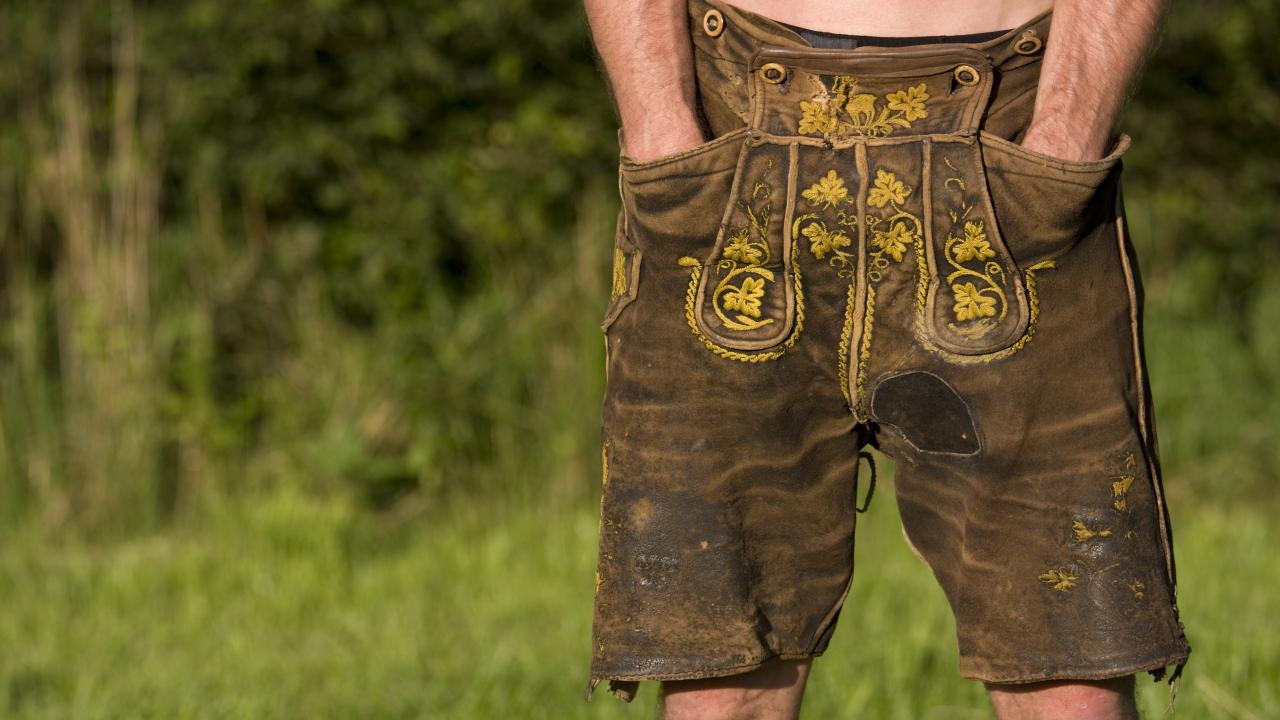The Austrian Identity
The mentality of these people. And this mentality is very much appreciated by the guests; it is something they long remember. This is confirmed by a comprehensive survey conducted by the tourism analyst Zoover among 30,000 people in twenty-two foreign markets. The findings: travellers perceive Austria as one of the most hospitable countries in the entire world. Germans, Dutchmen, and Czechs even rated the Austrians No. 1 in terms of hospitality, while Belgians, Turks, Swiss, and Danes awarded Austria second place.
These impressive results are a good reason to investigate exactly where the mentality of the country has its roots. How do the hosts here differ from those in other countries? What cultural influences shaped them? And above all, what binds the people in our country together, and why do visitors from abroad enjoy coming here so much?
How the Danube Monarchy shaped its people
We’re not talking here so much about Austria’s most familiar, visible features, such as skiing, waltzing, dirndls, schnapps, Alpine huts, mountains, bacon, or cheese. This is about a certain attitude, a mindset that did not just suddenly appear, but rather evolved over centuries. When we take a brief look at the history of this country, what looms large is Austria’s grand past as part of the Danube Monarchy.
For over 500 years Austria was the geographical centre of Europe and Vienna the political centre of the Habsburg Empire. And it was the Habsburgs who during this period made the country into a huge multi-national land. Peoples ranging from Germans, Czechs, and Hungarians to Slovaks and Bosnians were united under the Habsburg crown.
Long live compromise!
Today, Austria — as a result of this very history — is still a land of many ethnic groups, and the genes from the imperial past have been well preserved. The people here develop a very special ability that comes from living in this type of multicultural diversity: they are able to make compromises, and after they do they are able to live them very well.
History shows this quite clearly: in other countries there were revolutions, while in Austria there was compromise, and the compromise was called ”enlightened absolutism”. This means that both sides give a little. In other countries people specialized in waging wars. Austria, on the other hand, gained new territorial possessions through compromise in the form of arranged marriages.
This ”genetic code of the Austrians” is still very visible in daily life, although one cannot easily put one’s finger on what, precisely, the Austrian mentality is (which is why it is so very intriguing to guests). It is a mixture of characteristics and peculiarities that grew out of various cultural influences which less than a hundred years ago were still united in the multi-national state: the orderliness and thoroughness of the Germans, the soul of the Slavs, and the lifestyles of the Hungarians, Bohemians, and Italians. All of this has shaped the mentality of the urbanites just as the Alpine way of life in Tirol and Vorarlberg, or the easygoing attitude of the people of the Pannonian plain.
One can still sense this blend of cultures in everyday Austrian life: it is present in the unmistakable qualities of the Austrians — and particularly of the Austrian hosts — and in the everyday peculiarities of life:
• In the live-and-let-live attitude, which includes the little everyday fib.
• In suppression and resignation, which helps one to put the hardships of life into perspective and to enjoy the here and now.
• In pleasurable conversation and banter, which helps turn the daily grind into a casual little celebration, even if it often happens unconsciously.
• In the obliging, courteous way of life, which does not, however, mean subservience.
• In Austrian humour, which is characterized by its tendency toward irony, and especially toward self-irony.
What would Austria be without the Austrian hosts? Just another ordinary holiday country.
Everyday peculiarities that manifest the Austrian mentality and exemplify the cultural influences that have shaped this mentality.
Live and let live, or:
The little everyday fib that makes others happy.Suppression, or:
Putting hardships into perspective and enjoying the sunny sides of life.Pleasurable conversation and banter, or:
Turning the daily grind (sometimes unconsciously) into a casual little celebration.Austrian humour, or:
When the banter turns into self-irony and even apparent animosities take on a certain charm.The obliging, courteous way of life, or:
A deferential respect that is anything but subservient.
Live and let live, or:
The little everyday fib that makes others happy.
The feeling of live and let live, which includes the little fib. Little fib? The renowned cultural scholar Roland Girtler quotes a visitor from Munich as saying: ”People are insincere all over the world, but in Austria they are insincere in such a pleasant way.” One of the most common examples of this is feigned submissiveness, particularly shown to a woman. A shop assistant will invariably address her as Gnädige Frau (”my gracious lady”), as in ”Gnädige Frau, you are looking absolutely enchanting, as always.” The woman may have little interest in being gracious and even less in looking enchanting. ”Charm”, says Girtler, ”is not about tedious seriousness and boring truthfulness; it’s about the little fib, the pleasure that comes from saying something nice to another person with gallant words, even if everyone knows it is largely a put-on.”
What are the origins of this endearing little fib, manifested in the feigned submissiveness to a woman? It resulted from the convergence of many cultural influences.
The story presumably begins with the Spanish Moors, with whom the Habsburgs, by the way, wanted nothing to do. The poetry and songs of the Moors were filled with lovely forms and cheery words to extol the pleasures of life and the elegance of their women, to whom they wished to express their devotion. Travellers, Islamic and Jewish traders and merchants, and intrepid students — who came to Vienna to study at the city’s university, today the oldest in the German-speaking world (founded in 1365) — brought these songs and rapturous poems with them to Austria. Here they were infused with the joviality of the local apprentices, peasants, washer girls, imperial civil servants, hunters, and innkeepers, thus becoming what we now know as ”Austrian charm”. (Historical remarks by Robert Girtler)
Phrases commonly heard in daily life:
”Gnädige Frau, you are looking absolutely enchanting, as always.”
”Can I be of assistance? I am very happy to help.”
Suppression, or:
Putting the hardships of life into perspective and enjoying the sunny sides of life.
The conventional wisdom among travellers is that Austrians possess a certain imperturbability, a casualness in their daily lives. This is manifested in common phrases generally uttered when something goes wrong: ”It could have turned out worse”, or ”There’s nothing to be done”, or ”It will somehow take care of itself”.
To the visitor it appears that the Austrians don’t take life very seriously, that this is a land dominated by a sensuous, pleasure-oriented atmosphere. Austrian writers and poets have long been rather derisive of their countrymen’s fabled equanimity. In his tragedy The Fortune and Fall of King Ottokar, Franz Grillparzer (1791-1872) wrote: ”And therefore is the Austrian gay and frank, his frailties unconcealed, as are his joys, unenvying, but willing to be envied! Whate’er he does is done with gladsome spirit!” It is possible that ”in Saxony and on the Rhine there are good folk, much better read in books. But would you know what fitting is in need. What pleases God and man; seek you clear sight. An open mind that quickly finds the right. Then take the Austrians. Among them all I. They hold their own, talk little and think much”. The assessment of the twentieth-century Austrian writer Thomas Bernhard is no more affectionate: ”The Austrian resigns himself to every reality, or he goes to rack and ruin, assuming he hadn’t long since gone to rack and ruin because he resigned himself.”
But the Austrians’ (supposed) weaknesses and shortcomings, their foible for suppressing reality, are all part and parcel of the distinctive Austrian character that holds such a fascination for the visitor. As the humorist Hugo Wiener once put it so eloquently: ”Life is a tragedy, made up of many comedies.” This sums up the mentality of this country very well: the people here prefer to focus on the comedies, the pleasant things, and put the hardships of life into their proper perspective. For many Europeans, this is why Austria is a country of people who know how to live. And why the Austrian hosts are seen by guests as open-minded and friendly.
How did this lifestyle come about — this casual way of approaching life, this ability to put hardships into their proper perspective? In this case, as well, we must go back to the large multi-national state that was the Danube Monarchy. And to the ability to live with compromises (”It could have been worse”) or simply to suppress the problems (”That’s just the way it is”). These genes have been well preserved. A statement by Clemens Hellsberg, chairman of the Vienna Philharmonic, is instructive in this regard. He once explained: ”The music of composers like Strauss and Lanner conjures up an imperial and royal Austria that never existed in this form — unless we concede reality to our nostalgic dreams.” Regardless of whether the Austrians indulge in suppression, abandon themselves to illusions, or simply know how to live: this easygoing approach to life seems to make a lasting impression on visitors.
Phrases commonly heard in daily life:
”That’s just the way it is.”
”It could have been worse.”
”There are just some things that one cannot change.”
”That will somehow take care of itself.”
”You must celebrate when you have the chance.”
”We’ll see.”
Pleasurable conversation and banter, or:
Turning the daily routine (sometimes unconsciously) into a casual celebration.
The cultural scholar Roland Girtler sees Austrian hosts as ”European champions in the area of entertaining conversation”. Masters of this art in the past were the composers of yesteryear; today is the Viennese, as well as the Alpine folk of Tirol and Vorarlberg. As Girtler says, ”The cheerful and entertaining way of recounting anecdotes and addressing people is the essence of the charm of the Viennese — and of Austrians in general.” Over a matter of centuries, according to Girtler, the Austrians have learned to get along with foreigners and to open their hearts to them.
This natural talent as jovial raconteurs can be seen in many places — particularly in those that represent the famed Austrian gemütlichkeit (although for the Austrians they are part of everyday life) and where the holidaymaker meets the country’s hosts: at the Alpine huts, the mountain inns, the coffeehouses, and the rustic wine taverns known as Heurigen. This is where the friendly locals serve and entertain foreign visitors, providing the guests observe certain rules of courtesy. It is thus not surprising that the Swiss author Gabrielle Alioth wrote of her first visit to this country: ”Austria was a foreign land, but one in which I could feel at home.”
How did this custom of entertaining conversation evolve historically, and what cultural influences are manifested in it? It is a blend of traditional discipline, courtly ceremony, an easygoing live-and-let-live attitude, and an erotic tolerance that forms the foundation for the pleasurable and diverting lifestyle of the Austrians. This, as well, represents a convergence of the cultural influences of the multi-national empire.
Some of the greatest masters of entertaining diversion — indeed, creators of works called divertimenti, or ”amusements” — were Austria’s legendary composers, such as Mozart, who at an early age was captivated by the facileness and musicality of the Italians, and Haydn, whose compositions were greatly influenced by the Hungarian culture and temperament.
Quote:
”Austria was a foreign land, but one in which I could feel at home.”
Austrian humour, or:
When the banter turns into self-irony.
A country in which the tradition of entertaining diversion was shaped historically by the masters of music, and nowadays is celebrated by the general population with such relish, also stands for a special brand of humour. Describing this, however, is no easy matter. British humour is often referred to as ”dry”, but that of the Austrians? While there seems to be no suitable term for it, aspects of this humour one encounters in day-to-day life can provide a sense of what it’s all about. For example: irony. Yes, the Austrians are ironic — in three respects.
First, in a relaxed manner in their dealings with others. A small anecdote serves to illustrate this. It is a true story concerning a Swiss holidaymaker who, in a car packed to the rafters with family, pets, and luggage, becomes hopelessly lost in the maze of one-way streets in Vienna’s downtown on a hot summer day. Finally, in the middle of one intersection, he simply gives up. Whereupon a policeman approaches and asks laconically, ”So, William Tell, where are you trying to go?” This affectionate irony immediately relaxed the driver’s tension and improved his mood.
Second, the Austrians are receptive to the irony of others with regard to their country. An example is the line by the German comedian Dieter Nuhr: ”I watched the Austria-Cameroon match during the Football World Cup. On the one side exotic people, a strange culture, and wild rituals, and on the other side … Cameroon!”
Third, and most important, is the ironic view the Austrians take of themselves and the things they are obviously bad at. Which brings us back to football. Legendary in this regard is the comment by a former trainer of Austria’s national team: ”Today we worked on our strengths. Which is why we were finished after fifteen minutes”.
Self-irony in bad times (like the current miserable situation of Austrian football) unquestionably bonds people. As do the various forms of humour in this country. For instance, when the humour of the Austrian writer Friedrich Torberg (”Every bit a man is more handsome than a monkey, is luxury”) meets that of the Tirolean comedian Otto Grünmandl: ”Isn’t wearing a tie crazy — sticking your neck into a noose that anyone can pull tight?” Or when the humour of the local host is directed directly at the guest, such as in this little anecdote from the Tirolean Alps. Asked by a German guest when sunrise would be, the hut keeper responded without batting an eye: ”For small groups at 4:30 a.m., for larger groups at 5:30 a.m.”
Quotes:
”Today we worked on our strengths. Which is why we were finished after fifteen minutes”.
”I watched the Austria-Cameroon match during the Football World Cup. On the one side exotic people, a strange culture, and wild rituals, and on the other side … Cameroon!”
”Every bit a man is more handsome than a monkey, is luxury”
”Isn’t wearing a tie crazy — sticking your neck into a noose that anyone can pull tight?”
The obliging, courteous way of life, or:
A deferential respect that is anything but subservient.
Austrian mentality implies certain forms of deference and respect that sometimes can be mistakenly interpreted as subservience.
A young female student from Germany, for example, described why she liked being in Austria and at the University of Vienna. Here, she said, people still held doors open for young women like her and even helped them into their coats. This is a way of life that is obliging and courteous without being subservient or servile. Thus, although a traditional way to greet women in Austria is by saying ”Küss die Hand” — literally ”I kiss your hand” — one does not actually do it. This important distinction is made clear by a quote from the legendary Herr Robert, a waiter at Vienna’s famous coffeehouse Landtmann: ”Here, the guest is king”, he says, adding with a twinkle in his eye: ”but I’m the boss.” This sort of attitude makes a lasting impression on the visitor and ensures that his host remains in his memory.
”Apparently this mentality must be something of value,” writes the Viennese author and cultural researcher Ernst Strouhal. ”It is not intellect. Is it a special kind of thoughtfulness or politeness that the people here radiate? A magical attraction, an enchanted spirit of graciousness that shines out of them?” A comment by another Viennese writer, the late Jean Amery, sounds like a (charming) rebuttal to this. He spoke of the Austrian mentality in terms of a ”fermenting charm”, a mixture of flattery and malice that buries every conflict under a barrage of inebriated laughter. In the case of the female student from Germany, the flattery, assuming this is what it was, made a lasting impression.
Phrases commonly heard in daily life:
”Küss die Hand.”
”May I hold the door for you?”
”Here, the guest is king, but I’m the boss.”
”What nice thing can I do for you today?” (heard from a waiter at the Café Central)
Source: Vienna Tourism Board




